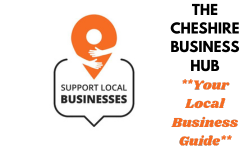A limited company is a type of business structure that offers its owners (shareholders) limited liability protection. This means that the personal assets of the shareholders are protected from the company’s debts and liabilities. In the event that the company faces financial difficulties or is sued, shareholders are only liable for the amount they have invested in the company and are not personally responsible for the company’s debts. This structure is popular because it separates the personal and business finances, offering peace of mind to investors and entrepreneurs.
Limited companies can be either private or public. A private limited company (often denoted as Ltd.) cannot offer its shares to the general public and typically has a smaller number of shareholders. This structure is common among small and medium-sized enterprises (SMEs). A public limited company (PLC), on the other hand, can offer its shares to the public through a stock exchange. This allows for raising capital from a broader range of investors, but it also involves more stringent regulatory requirements and greater transparency in financial reporting. Public limited companies tend to be larger and are subject to more extensive disclosure requirements compared to private limited companies.
One of the key advantages of a limited company is its ability to raise capital more easily than some other business forms, such as sole proprietorships or partnerships. This is particularly true for public limited companies, which can issue shares to the public. Limited companies also benefit from certain tax advantages, as corporate tax rates are often lower than personal tax rates. Additionally, having a limited company structure can enhance the business’s credibility and reputation, as it is often seen as a sign of stability and commitment to long-term growth. However, limited companies also face certain administrative responsibilities, such as filing annual reports and adhering to corporate governance standards, which require careful management and compliance.
A sole trader business, also known as a sole proprietorship, is a type of business structure where an individual owns and operates the business on their own. This is the simplest and most common form of business ownership, characterized by its ease of setup and minimal regulatory requirements. As a sole trader, the owner is solely responsible for all aspects of the business, including its debts, liabilities, and legal obligations. This means that there is no legal distinction between the owner and the business, and the owner may use their personal bank account for business purposes, though opening a separate business account is often recommended for clarity.
One of the primary advantages of a sole trader business is the complete control it grants the owner over decision-making and operations. This flexibility allows the owner to adapt quickly to market changes and customer needs. Additionally, the tax process can be more straightforward, as profits are typically considered personal income, and the owner may only need to file a personal tax return. However, this simplicity comes with the downside of unlimited liability, meaning that the owner’s personal assets, such as their home or savings, are at risk if the business incurs debts or legal actions.
Sole trader businesses are particularly well-suited for small-scale operations, freelancers, and self-employed individuals who want to maintain full autonomy and have relatively low overhead costs. Examples include tradespeople, consultants, and small retail shop owners. While this structure is ideal for many, it may not be suitable for those who plan to grow significantly or who need to raise substantial capital, as investors may be reluctant to invest in a business without a clear distinction between personal and business finances. As the business expands, owners often consider transitioning to more complex structures, such as partnerships or limited companies, to mitigate risks and enhance growth opportunities.
DO YOU OWN A SMALL INDEPENDENT BUSINESS THROUGHOUT CHESHIRE & CHESTER? Advertise With Us
